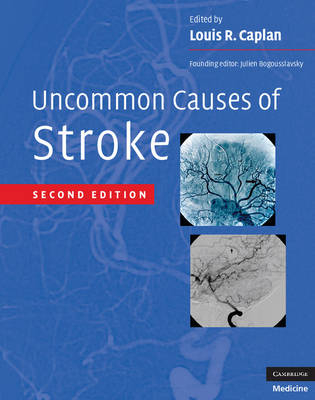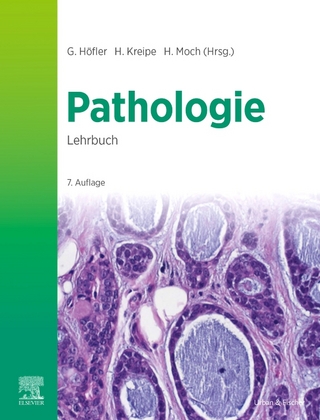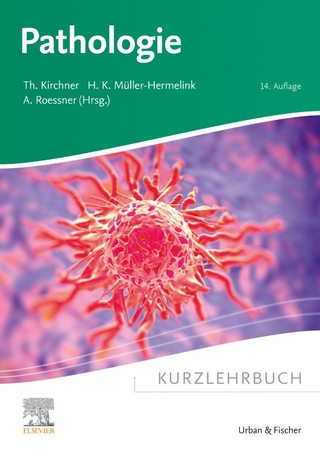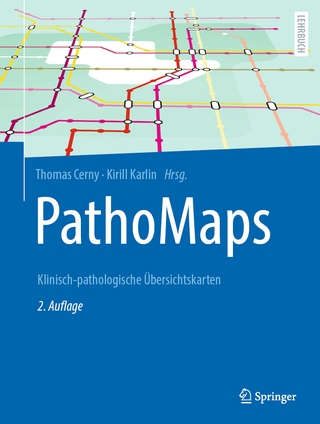
Uncommon Causes of Stroke
Cambridge University Press (Verlag)
978-0-521-87437-3 (ISBN)
- Titel erscheint in neuer Auflage
- Artikel merken
Most strokes are attributed to atherosclerosis of neck and intracranial arteries, brain embolism from the heart, and penetrating artery disease; these are discussed in detail in many other books. This compendium fills an important niche by providing authoritative discussions on the other, less common causes of stroke, including various forms of angiitis, coagulation disorders, infective, paraneoplastic and metabolic disorders that may be associated with stroke, and a number of rare syndromes such as Eales disease and Fabry's disease. This new edition contains detailed, up-to-date information about the nature, diagnosis, and treatment of those relatively uncommon types of cerebrovascular disease that cause strokes. It is therefore a unique scientific and clinical resource that provides a useful reference to help physicians diagnose and treat stroke patients who do not fit well into the usual clinical categories. New chapters include stroke in patients with Lyme disease, scleroderma, Cogan's syndrome, Chagas' disease, and HIV.
Louis R. Caplan is Senior Neurologist at the Beth Israel Deaconess Medical Center and Professor of Neurology at Harvard Medical School, Boston, Massachusetts.
Part I. Infectious and Inflammatory Conditions: 1. Isolated angiitis of the central nervous system; 2. Temporal arteritis; 3. Varizella zoster and other virus-related cerebral vasculopathy; 4. Takayasu disease; 5. Bürger's disease (thrombangiitis obliterans); 6. Neurosyphilis and stroke; 7. Vasculitis and stroke due to tuberculosis; 8. Stroke due to fungal infections; 9. Stroke and vasculitis in patients with cysticercosis; 10. Stroke in patients with Lyme disease; 11. Behçet's disease; 12. Stroke and neurosarcoidosis; 13. Kawasaki disease: cerebrovascular and neurologic complications; 14. Cerebrovascular problems in Chagas' disease; 15. Stroke in persons infected with HIV; 16. Pulmonary arteriovenous malformations; Part II. Hereditary and Genetic Conditions and Malformations: 17. Hereditary hemorrhagic telangiectasia (Osler-Weber-Rendu disease); 18. Cerebral autosomal dominant arteriopathy with subcortical infarcts and leukoencephalopathy (CADASIL); 19.Cerebrovascular complications of Fabry's disease; 20. Marfan's syndrome; 21. Pseudoxanthoma elasticum; 22. Ehlers-Danlos syndrome; 23. Progeria; 24. MELAS and other mitochondrial disorders; 25. Sturge-Weber syndrome; 26. Von Hippel-Lindau disease; 27. Aneurysms; 28. Arteriovenous malformations of the brain; 29. Cerebral cavernous malformations and developmental venous anomalies; 30. Cerebrovascular manifestations of neurofibromatosis; 31. Menkes disease (kinky hair disease); 32. Wyburn-Mason syndrome; Part III. Vascular Conditions of the Eyes, Ears, and Brain: 33. Eales retinopathy; 34. Acute posterior multifocal placoid pigment epitheliopathy (APMPPE); 35. Microangiopathy of the retina, inner ear and brain: Susac's syndrome; 36. Hereditary endotheliopathy with retinopathy; nephropathy and stroke (HERNS); 37. Cogan's syndrome; Part IV. Disorders Involving Abnormal Coagulation: 38. Antiphospholipid antibody syndrome; 39. Disseminated intravascular disease; 40. Bleeding disorders and thrombophilia; 41. Thrombotic thrombocytopenic purpura; 42. Cerebrovascular complications of Henoch-Schönlein purpura; Part V. Systemic Disorders that Also Involve the Cerebrovasacular System: 43. Microscopic polyangiitis and polyarteritis nodosa; 44. Churg-Strauss syndrome; 45. Systemic lupus erythematosus; 46. Rheumatoid arthritis and cerebrovascular disease; 47. Hyperviscosity and stroke; 48. Calcium, hypercalcemia, magnesium, and brain ischemia; 49. Stroke and substance abuse; 50. Cancer and paraneoplastic strokes; 51. Kohlmeier-Degos' disease (malignant atrophic papulosis); 52. Stroke in patients who have inflammatory bowel disease; 53. Sweet's syndrome (acute febrile neutrophilic dermatosis); 54. Nephrotic syndrome and other renal diseases and stroke; 55. Epidermal nevus syndrome; 56. Sneddon's syndrome; 57. Metabolic causes of stroke; 58. Bone disorders and cerebrovascular disease; 59. Sclerederma; Part VI. Non-inflammatory Disorders of the Arterial Wall: 60. Cervico-cephalic arterial dissections; 61. Cerebral amyloid angiopathies; 62. Moya-moya syndrome; 63. Dilatative arteriopathy (dolichoectasia); 64. Paradoxical embolism and stroke; 65. Fibromuscular dysplasia; Part VII. Venous Occlusive Conditions: 66. Cerebral venous sinus thrombosis; Part VIII. Vasospastic Conditions and other Miscellaneous Vasculopathies: 67. Reversible cerebral vasoconstriction syndromes; 68. Eclampsia and stroke during pregnancy and the puerperium; 69. Migraine and migraine-like conditions; Part IX. Other Miscellaneous Conditions: 70. Intravascular lymphoma; 71. Other conditions.
| Erscheint lt. Verlag | 9.10.2008 |
|---|---|
| Zusatzinfo | 83 Tables, unspecified; 8 Plates, color; 217 Halftones, unspecified; 9 Line drawings, unspecified |
| Verlagsort | Cambridge |
| Sprache | englisch |
| Maße | 223 x 282 mm |
| Gewicht | 2270 g |
| Themenwelt | Medizin / Pharmazie ► Medizinische Fachgebiete ► Neurologie |
| Studium ► 2. Studienabschnitt (Klinik) ► Pathologie | |
| ISBN-10 | 0-521-87437-8 / 0521874378 |
| ISBN-13 | 978-0-521-87437-3 / 9780521874373 |
| Zustand | Neuware |
| Haben Sie eine Frage zum Produkt? |
aus dem Bereich


